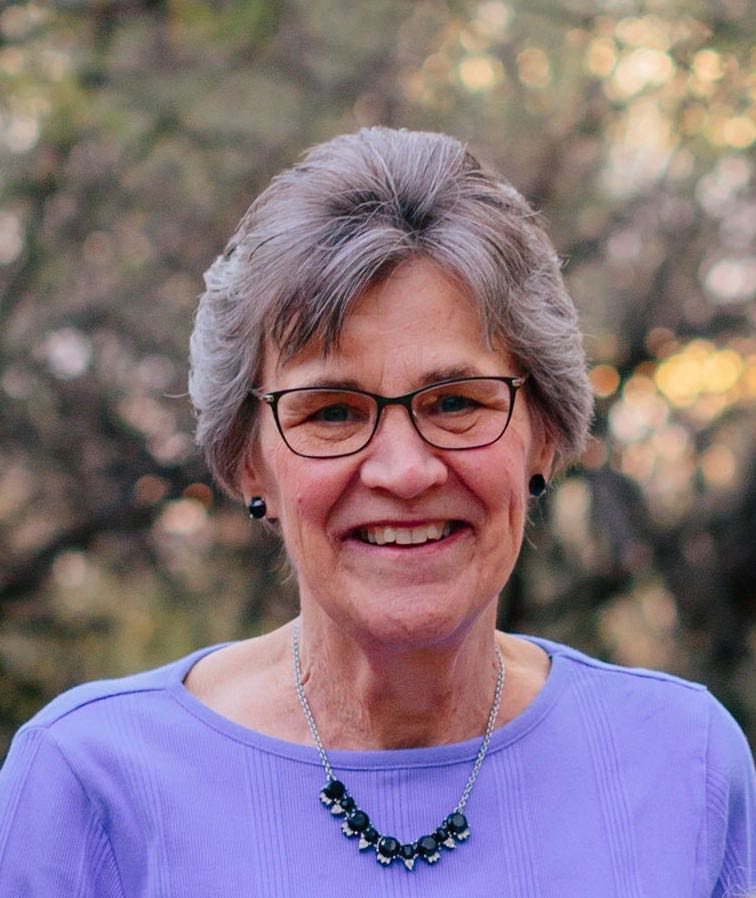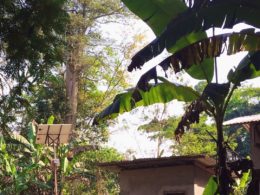By Ann Wester
As Stacy* and I approached the door to the government office, she whispered, “I won’t say a single word.” That meant that I would be on my own during the hearing. A wave of tension swept over me, a recurring experience during the past few days. I would soon find out if a decision I’d made had put my ministry at risk.
Earlier that morning, before the courtroom meeting, a Bible verse, Romans 8:28, had come to mind: “All things work together for good to them that love God.” I knew the verse well, but I couldn’t help wondering what good could result from this situation. I was unsettled at the verse’s future focus, the implied “eventual” fulfillment of God’s purposes. I needed something for now. I didn’t realize I would soon learn something about God’s promises that would remain with me forever.
This whole courtroom drama had commenced about a week earlier, on what seemed like a normal morning.
As I had clicked the combination lock of my simple, cement-block home, I noticed that the previous night’s rain had brightened the green grass and ruby cannas. In a few weeks, dry season would begin, but for now we welcomed the rains, even though they made the short trek to the classrooms a rather slippery and muddy mess.

I was adapting to my role change, from full-time teacher to part-time teacher and principal of a girls boarding school “in the boonies” of northwestern Zaire (now Congo). I was pleased that the initial three weeks of the school year had transpired quite well.
Skirting another puddle, I became aware that a pickup truck was rumbling toward the Lycée Lua campus. All thoughts of geometry, spelling, and French verbs evaporated from my mind.
We did not anticipate any visitors, so who could it be?
The pickup pulled up beside me. I greeted the well-dressed official who climbed out. Immediately, I sensed this wasn’t just a friendly visit.
The man, attired in suit and tie, quickly stated his purpose: “Mr. Zinga wants you to accept his daughter into your seventh-grade class.”
I knew Mr. Zinga to be a high-ranking leader in the national government. The school year had already begun, and we had declined requests by other latecomers. However, Mr. Zinga’s representative ignored those facts.
I’d already taught six years at Lycée Lua, but I had been principal for only a few weeks. It wasn’t a role I’d sought, but someone had to do it while the previous principal was on home assignment in North America. She had shared much useful information with me, but I was not prepared for this dilemma.
If I accepted the student, I feared criticism from families of rejected students. I also figured that Mr. Zinga would interfere with disciplinary and scholastic issues, compromising our standards. Plus, I assumed that the principal whom I was replacing would not approve.
Another staff member, Stacy, joined me and we conferred briefly. I knew I bore the main responsibility, and it weighed heavily. However, we both agreed to decline the request, hoping for the best.
The blue pickup sped away, but we could tell that Mr. Zinga’s delegate was unhappy. A few days later, Stacy and I received a written summons to appear at court the following day, an hour’s drive away, at nine o’clock. The letter troubled us, but we could not refuse the official request. So, that afternoon we drove to the town, spent the night with missionary friends and prayed for a positive outcome.
We had asked Pastor Monga to accompany us to court, since he had previously been the city mayor. However, when we three arrived on time at the appointed location, the officials declared that only Stacy and I could enter, since ours were the only names on the official document. That was when Stacy informed me she would not say even one word. I felt vulnerable and alone. If neither Stacy nor Pastor Monga would be supporting me, then who would?
Mr. Zinga’s representative recounted his visit to Lycée Lua the previous week. I was allowed to explain our side of the story, but the consensus of the men present was, “Mr. Zinga is a very important person, and if you don’t accept his daughter, you will probably be expelled from this country.”
I requested permission to speak to Stacy in English. Basically, I told her I felt that we had no choice but to consent, and she nodded in agreement.

When the officials heard our acceptance of their request, they assured us that “Mr. Zinga will not interfere at all. He knows you treat the students fairly and you have high standards. After all, that’s why he wants his daughter in your school.”
Suddenly, the hour-long “trial” ended.
Stacy and I wearily strolled to our vehicle. It all seemed so anticlimactic. The overflowing sense of worry and tension had dissolved into shock and relief.
Sure enough, the old blue pickup rumbled into the school compound a few days later, with Bole, the new student. Bole fit into the school setting and got along well with the other students.
Although more than forty years have passed since then, I’ve never been sure if we were right or wrong in accepting Mr. Zinga’s daughter after refusing other latecomers. All options had potentially negative repercussions.
More importantly, though, the stress of the events surrounding the court hearing drove me to the Bible. While Romans 8:28 had stuck out to me before the trial, with its future promise, Psalm 23:6 comforted me afterward. The Louis Segond French translation of the verse says, “Yes, happiness and grace will accompany me all the days of my life.”

The verb accompany certainly comforted me. Even though I’d felt alone in the courtroom, the verse encouraged me that I was not by myself. The two people who accompanied me did not speak in my defense, but I was helped.
Since then, I’ve experienced medical evacuations, challenging conversations, loneliness, discouragement, attacks on our home, political unrest, transitions—and God continues to faithfully remind me that he is accompanying me each day through it all.
*All names have been changed.

Ann Wester has lived in Belgium, Cameroon, Central African Republic, Congo/Zaire, USA, and Venezuela. She is currently retired in Iowa.












